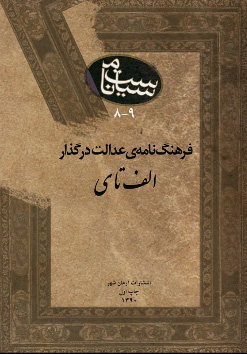Interview with Karim Lahidji
FIDH vice-president and president of the Iranian League for the Defence of Human Rights
(LDDHI)
FIDH: The United Nations Human Rights Council renewed in March the mandate of the Special Rapporteur on the situation of human rights in Iran. What does this mean?
Karim Lahidji: For many years the human rights situation in Iran has been on the agenda of the General Assembly and other UN bodies, because of the ongoing systematic violations of human rights and fundamental freedoms in the country. However, the constant degradation of human rights in Iran made the mission of the Special Rapporteur – appointed in 2011 – crucial. For the victims of human rights violations, for their families and even for ourselves, the Special Rapporteur represents the only way to press the Iranian authorities to abandon its policy of repression. The renewal of the mandate of the UN Human Rights Council was in this sense a strong signal.
FIDH: FIDH and LDDHI published a list of human rights defenders currently imprisoned as a result of their activities. What is the situation of human rights defenders in Iran today?
KL: Iran is one of the largest prisons in the world for human rights defenders. Since 2009 and the repression following the protests against the presidential election’s results, many defenders, lawyers and journalists have been arrested, subjected to unfair trials and imprisoned to prevent them from acting. Ten lawyers, around thirty journalists and dozen of Iranian civil society activists are currently in prison. Nasrin Sotoudeh, Abdolfattah Soltani, Mohammade Seyfzadeh and Mohammad Ali Dadkhah were sentenced to prison terms of between 6 to 11 years for having provided legal defence to political prisoners. In this context, what margin of action is there today for human rights defenders? Repression is systematic in the country and the people committed to defending human rights of Iranians have no other choice but persecution or exile.
FIDH: The penal policy, and particularly the reasons for convictions and executions, are majors concerns expressed by civil society organizations. Which have been the recent trends in this regard?
KL: The Islamic Penal Code, dating from 1991, has recently been the object of a series of changes, which are not yet put in practice. This reform was a major missed opportunity. Despite repeated recommendations of various UN bodies, by many states in the framework of the Universal Periodic Review as well as several NGOs, the new code remains one of the most “generous” with regard to the application of the death penalty. The death penalty is used and enforced not only for common crimes, but also for crimes of opinion, for drug trafficking or for violations of ‘’public decency’’. Iran has not put an end to the execution of minors. As a result, over the last 5 years, 500 to 600 people at the very least have been executed annually in Iran.
FIDH: The next presidential elections are scheduled in June. The 2009 elections were followed by demonstrations resulting in an increased crackdown on freedoms of assembly, association and expression, as well as in the arrest of several candidates, including MM. Mousavi and Karoubi. What is the status of political freedom in Iran on the eve of the elections?
KL: The already critical situation has further deteriorated in recent months. Hundreds of people arrested right after the peaceful demonstrations in 2009, are still behind bars. MM. Karroubi and Mousavi and his wife has been under house arrest for 2 years. FIDH and LDDHI obtained from the UN Working Group on Arbitrary Detention the confirmation of the arbitrary nature of these detentions and calls for their immediate release. Lately the pressure on the media has intensified and twenty journalists were arrested for having contacts with foreign media. In short, on the eve of the elections, all possible means of pressure and intimidation are used to prevent events like the 2009 demonstrations from occurring once again.
FIDH Asia Newsletter No. 4

